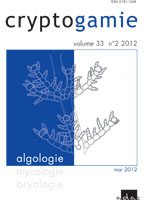The development of Ostreopsis cf. ovata, a toxic benthic dinoflagellate has increased in the North Western Mediterranean Sea, causing health, ecological and economical concerns. In order to understand the ecological impact on macroinvertebrates, a preliminary study was carried on edible grazers, the sea urchin Paracentrotus lividus and the limpet Patella spp. Their densities were followed toward the abundance of O. cf. ovata. Thus, in 2008, we performed a monthly field survey in scuba-diving in three sites of the North Western Mediterranean Sea (Genoa, Nice and Villefranche-sur-Mer) at the sea surface and at 1 and 3 m depth. Results showed that at 1 m and 3 m depth, the density of P. lividus was not clearly affected by a strong development of Ostreopsis. Decrease in P. lividus abundance may be due to natural variation or to fishing activities especially in France. Regarding the density of Patella spp., only one significant decrease was observed between July and August 2008 in Genoa. Patella species are living in the interdital zone, we could therefore hypothese that the limpets were intoxicated either by direct ingestion of O. cf ovata by grazing and/or by the toxins released in the surrounding water.
How to translate text using browser tools
1 May 2012
Preliminary Assessments of the Impact of Ostreopsis cf. ovata (Dinophyceae) Development on Macroinvertebrates in the North Western Mediterranean Sea
Aurélie Blanfune,
Stéphanie Cohu,
Luisa Mangialajo,
Rodolphe Lemée,
Thierry Thibaut
ACCESS THE FULL ARTICLE
It is not available for individual sale.
This article is only available to subscribers.
It is not available for individual sale.
It is not available for individual sale.

Cryptogamie, Algologie
Vol. 33 • No. 2
May 2012
Vol. 33 • No. 2
May 2012
macroinvertebrates
Mediterranean Sea
Ostreopsis
Paracentrotus lividus
Patella spp




